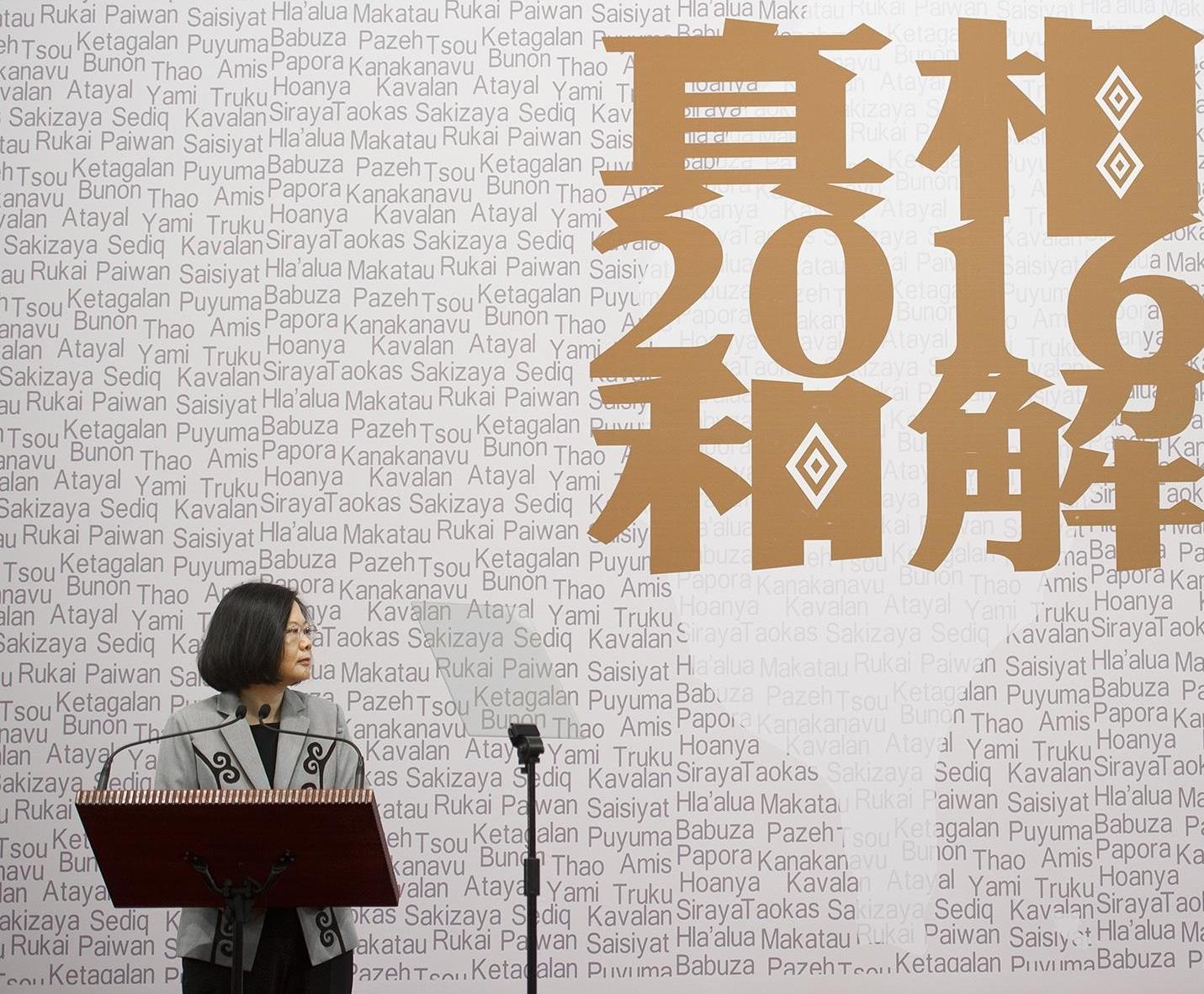by Brian Hioe
語言:
English
Photo Credit: Screenshot
THAT RACIAL DISCRIMINATION against indigenous and other minority groups continues to be an issue in Taiwan was spotlighted late last month at the Golden Bell Awards after Luo Xiao-yun (羅小雲), the chair of the judging committee for the awards, made ape noises while presenting an award to an indigenous NGO.
The Golden Bell Awards are Taiwan’s major awards for television and radio programs, as organized by the Ministry of Culture. Luo was presenting an award to the Indigenous Peoples Cultural Foundation (財團法人原住民族文化事業基金會) for their program “Acoustic Explorations” (原聲探索). As she was doing so, Luo commented, “Shouldn’t you make noises like this?” (欸,你們是不是應該這樣叫啊?). Luo then began making ape noises.
Video of the incident
In the aftermath of the subsequent controversy, Luo, a veteran of the Taiwanese media industry, resigned from her position. At the same time, Luo refused to apologize for her statement. One notes, however, that the controversy has been relatively minor, the incident having not led to a great deal of public discussion.
This is not the only incident of casual discrimination against Taiwanese indigenous at national events in Taiwan in past years. The 2016 inauguration of current president Tsai Ing-wen was preceded by a performance entitled “Taiwan’s Light”, which depicted the past four hundred years of Taiwanese history. However, this performance marked the colonization of Taiwan by western powers as the start of Taiwanese history, rather beginning from the thousands of years of indigenous history that preceded this. The performance also saw backlash from indigenous groups because it depicted indigenous groups in stereotypical terms as a happy, singing, and dancing peoples and suggested that they were uncivilized compared to western missionaries. The narration during the performance stated that, “After the sixteenth century, religions from Western countries changed the primitive and uncultivated customs of the indigenous” (十六世紀以來西方國家帶來的宗教,改變了原住民草莽而粗獷的習俗).
One notes that the Golden Bell incident illustrates how such incidents of casual discrimination continue to occur at national-level events despite the historic apology to indigenous on behalf of the ROC government by Tsai Ing-wen in August 2016.
Indeed, in response to claims by World Health Organization head Tedros Adhanom Ghebreyesus that the Taiwanese government was involved in organizing a “racist” campaign against him, Presidential Office spokesperson Joanne Ou stated that “The concept of racism does not exist in Taiwan. We do not have a problem of racism.” While there was no such campaign against Tedros, it should be clear that racism does exist in Taiwan and that Taiwan is far from overcoming issues regarding racism.
This occurs on a number of levels. Police violence is disproportionately higher against indigenous and migrant workers, as observed in higher proportions of police deployed for indigenous protests, or killings of migrant workers by police in past years, most notably with the 2017 shooting of 27-year-old Vietnamese migrant worker Nguyen Quoc Phi. Socioeconomic inequality also results in the fact that the average life expectancy of indigenous is ten years less than that of their Han counterparts.
 President Tsai Ing-wen during her apology to Taiwanese indigenous on behalf of the ROC. Photo credit: Presidential Office
President Tsai Ing-wen during her apology to Taiwanese indigenous on behalf of the ROC. Photo credit: Presidential Office
The Tsai administration has also not lived up to its rhetoric on indigenous rights. Despite the rhetoric of the Tsai administration that transitional justice in Taiwan includes transitional justice for indigenous and that it would return traditional territories, the Tsai administration only returned traditional territories that were publicly administered, without returning traditional territories in private hands. This has seen continuous protest by indigenous groups for the past five years, with an occupation maintained by indigenous singer-songwriter and activist Panai Kusui on Ketagalan Boulevard and then in the 228 Memorial Park.
Likewise, indigenous have sometimes faced charges for practicing traditional cultural practices that should be protected by law. This has particularly been an issue with indigenous hunters, who have faced legal charges for violating hunting laws that would lead to years of imprisonment. A particularly visible case of this was the 2015 Tama Talum case, during which 54-year-old Bunun hunter Tama Talum faced legal charges because of hunting to take care of his ailing mother.
Issues regarding discrimination against indigenous continue to be an issue in Taiwan, then. The Golden Bell controversy not only proves an index of the long path to be walked for Taiwan to truly be a society free of racism, but points to a larger constellation of issues facing Taiwanese indigenous and other groups.

